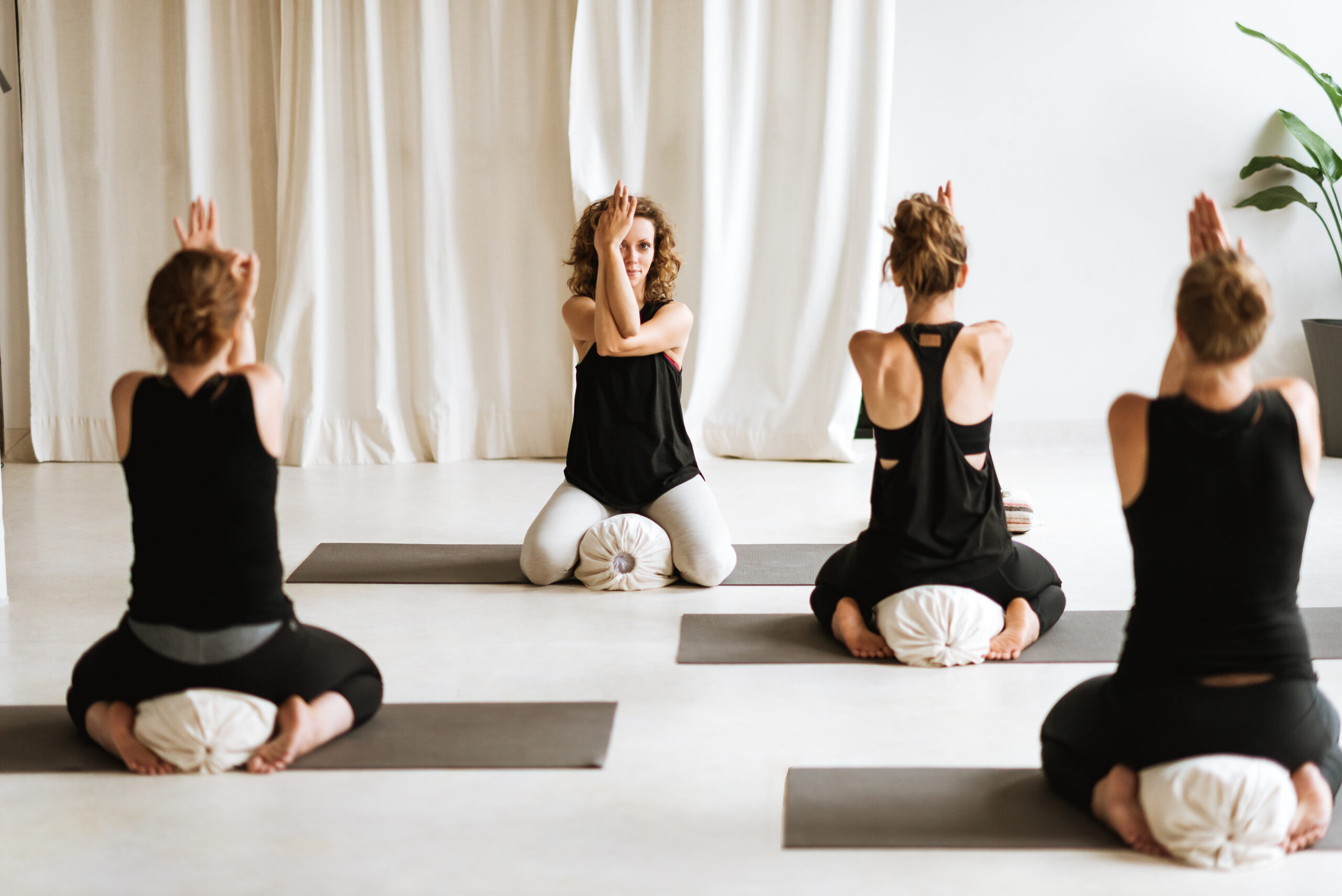From Now Until I Die… A Few Words on Consistency

Why do we struggle to stick with a regular practice, even when we know yoga is good for our body and soul?
During one of the recent corporate yoga classes I taught, a student admitted she struggles to stay motivated for more frequent practice. She confessed that she finds it difficult to motivate herself to practice more often, worrying that squeezing in just one session a week at the office (or sometimes even less) isn’t enough to really feel the benefits or make it a habit.
Statistics show that only about 2-4 out of 10 people practice yoga regularly. By regularly, I mean at least once a week. Not too much, right? I’d bet that if you asked the other 6-8 people, most would probably say they wish they practiced more often. So, what really makes it so hard to practice yoga consistently, despite knowing how beneficial it is?
How long does it take to build a habit?
There can be a million reasons. From aiming for perfection and setting unrealistic goals (“Morning yoga EVERY single day starting tomorrow, until I die!”) to feeling exhausted and overwhelmed after a day full of meetings, and even a lack of consistency and a solid plan for making a habit stick.
Here’s the thing: building a habit takes time. James Clear, the world-renowned author and speaker known for his insights into the power of habits, says it takes about 66 days, while other experts suggest around 8 weeks. What makes it even more complicated is that it all depends on our personality and the nature of the habit itself. If something comes easier and brings quick, positive results, it will obviously be easier to stick with it. There’s one more thing—the answer to a crucial question.
THE Question
Have you ever wondered why you practice yoga? What makes you choose it over everything else?
Most people I talk to give one of three answers:
- Improved physical well-being.
- Enhanced mood and greater inner peace.
- Social connection, especially important for expats.
When I started, dealing with my never-ending lower back pain, I definitely fell into the first category. But over time, I’ve checked off each of those boxes one by one, and now all of them motivate me to keep showing up for my practice.
Many experts in psychology and management emphasize the crucial role of knowing your “why” in building habits and routines. Understanding your motivation makes it easier to figure out what steps to take next and which actions are worth your time, especially when you see progress toward your ultimate goal.
Take that back pain example again. Once you realize that your main reason for practicing yoga is to ease the ache, and you notice it actually works after a few sun salutations, it’s much easier to convince yourself to roll out the mat when you’re feeling less than enthusiastic. Or if you’re trying to manage your anger better, say around the kids, knowing that helps you shift your focus to deep breaths rather than diving into an argument, because you’ve done the mental prep work and know it’ll help you get where you want to be.
The more, the better…
I truly believe that being intentional and understanding your motivation is key to making lasting changes. The more you stick with something like yoga or whatever else floats your boat, the easier it becomes and the more it becomes second nature, shaping your perception, who you are, and how others see you.
So, today’s question for you is: What’s your motivation for practicing yoga, mindfulness, or whatever else fills your cup?
Take a moment to reflect on this and try not to forget your conclusions, as they might come in handy the next time you think about giving up.


